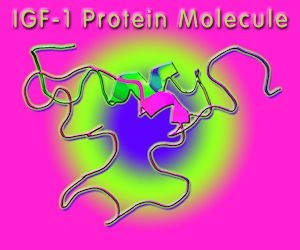Introduction
Hypopituitarism, a condition characterized by the diminished secretion of one or more pituitary hormones, has been increasingly recognized in the context of various systemic diseases. Among these, inflammatory bowel disease (IBD), which includes Crohn's disease and ulcerative colitis, has emerged as a significant area of interest. This article delves into the gastrointestinal link between hypopituitarism and IBD, with a particular focus on American males, who may face unique health challenges and considerations.
Understanding Hypopituitarism
Hypopituitarism results from damage to the pituitary gland, which can be caused by tumors, radiation, surgery, or autoimmune conditions. The pituitary gland, often referred to as the "master gland," regulates various bodily functions through the secretion of hormones such as growth hormone, thyroid-stimulating hormone, and adrenocorticotropic hormone. When these hormones are deficient, a cascade of health issues can ensue, affecting metabolism, growth, and overall well-being.
The Spectrum of Inflammatory Bowel Disease
Inflammatory bowel disease encompasses a group of chronic inflammatory conditions of the gastrointestinal tract. Crohn's disease can affect any part of the digestive system, from the mouth to the anus, while ulcerative colitis primarily affects the colon and rectum. Both conditions are characterized by periods of remission and flare-ups, with symptoms including abdominal pain, diarrhea, and weight loss. The prevalence of IBD has been rising in the United States, with significant implications for affected individuals' quality of life.
The Gastrointestinal Link
Recent studies have begun to explore the potential link between hypopituitarism and IBD. One hypothesis suggests that the chronic inflammation associated with IBD may contribute to the development of hypopituitarism through an autoimmune mechanism. Conversely, the hormonal imbalances caused by hypopituitarism could exacerbate the symptoms of IBD, creating a vicious cycle of inflammation and hormonal disruption.
Clinical Observations in American Males
American males with IBD may be at a higher risk of developing hypopituitarism due to the interplay of genetic, environmental, and lifestyle factors. For instance, the stress associated with managing a chronic condition like IBD can impact the hypothalamic-pituitary-adrenal axis, potentially leading to hormonal imbalances. Additionally, certain medications used to treat IBD, such as corticosteroids, can affect pituitary function and contribute to hypopituitarism.
Diagnostic and Management Strategies
Diagnosing hypopituitarism in the context of IBD requires a comprehensive approach. Clinicians should be vigilant for symptoms such as fatigue, decreased libido, and changes in body composition, which may indicate hormonal deficiencies. Blood tests to measure hormone levels, along with imaging studies of the pituitary gland, are essential for confirming the diagnosis.
Management of hypopituitarism in American males with IBD involves a multidisciplinary approach. Hormone replacement therapy is often necessary to address specific deficiencies, while ongoing monitoring and adjustment of IBD treatments are crucial to manage both conditions effectively. Collaboration between gastroenterologists and endocrinologists is vital to tailor treatment plans that address the unique needs of each patient.
Implications for Public Health
The recognition of the link between hypopituitarism and IBD has significant implications for public health, particularly for American males. Increased awareness and education about these conditions can lead to earlier diagnosis and intervention, potentially improving outcomes and quality of life. Furthermore, research into the underlying mechanisms of this link may uncover new therapeutic targets and strategies for managing both hypopituitarism and IBD.
Conclusion
The gastrointestinal link between hypopituitarism and inflammatory bowel disease represents a complex interplay of hormonal and inflammatory processes. For American males, understanding this connection is crucial for effective management and improved health outcomes. As research continues to unravel the intricacies of these conditions, it is imperative that healthcare providers remain vigilant and proactive in addressing the needs of patients with both hypopituitarism and IBD.
Contact Us For A Fast And Professional Response

- Unraveling the Link Between Hypopituitarism and Cardiovascular Health in American Males [Last Updated On: March 3rd, 2025] [Originally Added On: March 3rd, 2025]
- Hypopituitarism's Impact on American Men: Symptoms, Challenges, and Coping Strategies [Last Updated On: March 10th, 2025] [Originally Added On: March 10th, 2025]
- Unraveling the Link Between Hypopituitarism and Metabolic Syndrome in American Males [Last Updated On: March 15th, 2025] [Originally Added On: March 15th, 2025]
- Hypopituitarism and Cardiovascular Health: Unveiling the Hidden Risks in American Males [Last Updated On: March 16th, 2025] [Originally Added On: March 16th, 2025]
- Unveiling the Connection: Hypopituitarism and Uterine Fibroids in American Males [Last Updated On: March 16th, 2025] [Originally Added On: March 16th, 2025]
- Understanding Hypopituitarism and Its Impact on Male Reproductive Health [Last Updated On: March 16th, 2025] [Originally Added On: March 16th, 2025]
- Unraveling the Hormonal Link: Hypopituitarism and Breast Cancer in American Males [Last Updated On: March 16th, 2025] [Originally Added On: March 16th, 2025]
- Hypopituitarism's Impact on Cognitive Function in American Males: Diagnosis and Management [Last Updated On: March 17th, 2025] [Originally Added On: March 17th, 2025]
- Hypopituitarism and Autoimmune Disorders: Implications for American Males [Last Updated On: March 18th, 2025] [Originally Added On: March 18th, 2025]
- Hypopituitarism in American Males: Impacts on Sleep and Hormonal Balance [Last Updated On: March 18th, 2025] [Originally Added On: March 18th, 2025]
- Hypopituitarism in American Males: Impact on Skin Health and Management Strategies [Last Updated On: March 18th, 2025] [Originally Added On: March 18th, 2025]
- Hypopituitarism and Obesity in American Males: Hormonal Impacts and Management Strategies [Last Updated On: March 18th, 2025] [Originally Added On: March 18th, 2025]
- Hypopituitarism in American Males: Pituitary Tumors and Surgical Management Insights [Last Updated On: March 18th, 2025] [Originally Added On: March 18th, 2025]
- Hypopituitarism and Anemia in American Males: The Erythropoietin Connection [Last Updated On: March 19th, 2025] [Originally Added On: March 19th, 2025]
- Multidisciplinary Approach to Managing Hypopituitarism in American Males [Last Updated On: March 19th, 2025] [Originally Added On: March 19th, 2025]
- Hypopituitarism in Aging American Males: Symptoms, Impact, and Management Strategies [Last Updated On: March 20th, 2025] [Originally Added On: March 20th, 2025]
- Hypopituitarism in American Males: Cancer Risks and Management Strategies [Last Updated On: March 21st, 2025] [Originally Added On: March 21st, 2025]
- Hypopituitarism and Male Pattern Baldness: Hormonal Links and Psychological Impacts [Last Updated On: March 21st, 2025] [Originally Added On: March 21st, 2025]
- Hypopituitarism's Impact on Joint Health in American Males: Hormones and Management [Last Updated On: March 21st, 2025] [Originally Added On: March 21st, 2025]
- Hypopituitarism and Hearing Loss: Implications for American Males [Last Updated On: March 22nd, 2025] [Originally Added On: March 22nd, 2025]
- Hypopituitarism in American Males: Impacts on Mental Health and Management Strategies [Last Updated On: March 22nd, 2025] [Originally Added On: March 22nd, 2025]
- Hypopituitarism's Impact on Asthma in American Males: Diagnosis and Management Strategies [Last Updated On: March 22nd, 2025] [Originally Added On: March 22nd, 2025]
- Hypopituitarism's Impact on Immune Function in American Males: Challenges and Management [Last Updated On: March 22nd, 2025] [Originally Added On: March 22nd, 2025]
- Hypopituitarism and Allergies: Exploring Links in American Males [Last Updated On: March 22nd, 2025] [Originally Added On: March 22nd, 2025]
- Hypopituitarism and Seizure Disorders: Neurological Links in American Males [Last Updated On: March 23rd, 2025] [Originally Added On: March 23rd, 2025]
- Hypopituitarism's Impact on Kidney Health: Monitoring and Management Strategies [Last Updated On: March 23rd, 2025] [Originally Added On: March 23rd, 2025]
- Hypopituitarism's Impact on Muscle Strength in American Males: Hormonal and Therapeutic Insights [Last Updated On: March 23rd, 2025] [Originally Added On: March 23rd, 2025]
- Hypopituitarism and CFS Overlap: Challenges and Treatment in American Men [Last Updated On: March 24th, 2025] [Originally Added On: March 24th, 2025]
- Hypopituitarism's Impact on Gastrointestinal Health in American Males: Symptoms and Management [Last Updated On: March 24th, 2025] [Originally Added On: March 24th, 2025]
- Hypopituitarism's Impact on Kidney Health: Essential Monitoring for American Males [Last Updated On: March 24th, 2025] [Originally Added On: March 24th, 2025]
- Hypopituitarism's Impact on Liver Health in American Males: Management and Treatment [Last Updated On: March 25th, 2025] [Originally Added On: March 25th, 2025]
- Hypopituitarism in American Males: Impact on Visual Health and Management Strategies [Last Updated On: March 25th, 2025] [Originally Added On: March 25th, 2025]
- Hypopituitarism and Migraines: Hormonal Links in American Males [Last Updated On: March 25th, 2025] [Originally Added On: March 25th, 2025]
- Hypopituitarism and Stroke Risk in American Males: Monitoring and Management Strategies [Last Updated On: March 25th, 2025] [Originally Added On: March 25th, 2025]
- Autoimmune Link Between Hypopituitarism and RA in American Males: Impacts and Management [Last Updated On: March 25th, 2025] [Originally Added On: March 25th, 2025]
- Hypopituitarism's Impact on Pancreatic Health in American Males: Risks and Management [Last Updated On: March 26th, 2025] [Originally Added On: March 26th, 2025]
- Hypopituitarism's Impact on Parkinson's Disease Progression in American Males [Last Updated On: March 26th, 2025] [Originally Added On: March 26th, 2025]
- Hypopituitarism and Gallbladder Disease: Exploring Links in American Men [Last Updated On: March 26th, 2025] [Originally Added On: March 26th, 2025]
- Hypopituitarism and Pituitary Cancer: Early Detection and Management in American Males [Last Updated On: March 26th, 2025] [Originally Added On: March 26th, 2025]
- Hypopituitarism and Fibromyalgia: Shared Symptoms and Management in American Males [Last Updated On: March 27th, 2025] [Originally Added On: March 27th, 2025]
- Exploring the Link Between Hypopituitarism and Alzheimer's in American Males [Last Updated On: March 27th, 2025] [Originally Added On: March 27th, 2025]
- Hypopituitarism and Dyslipidemia: Impacts and Management in American Males [Last Updated On: March 27th, 2025] [Originally Added On: March 27th, 2025]
- Hypopituitarism, Celiac Disease, and Autoimmune Links in American Males: A Comprehensive Overview [Last Updated On: March 27th, 2025] [Originally Added On: March 27th, 2025]
- Hypopituitarism's Impact on Glucose Metabolism in American Males with Diabetes Mellitus [Last Updated On: March 27th, 2025] [Originally Added On: March 27th, 2025]
- Exploring Hypopituitarism and MS Link in American Males: Diagnosis and Treatment Insights [Last Updated On: March 27th, 2025] [Originally Added On: March 27th, 2025]
- Hypopituitarism's Impact on Osteoarthritis in American Males: Hormonal and Joint Health [Last Updated On: March 27th, 2025] [Originally Added On: March 27th, 2025]
- Hypopituitarism's Impact on Uric Acid and Gout in American Males: A Comprehensive Analysis [Last Updated On: March 27th, 2025] [Originally Added On: March 27th, 2025]
- Hypopituitarism and Hypertension: Impact on Blood Pressure in American Males [Last Updated On: March 27th, 2025] [Originally Added On: March 27th, 2025]
- Hypopituitarism in American Males: Cardiovascular Risks and Management Strategies [Last Updated On: March 28th, 2025] [Originally Added On: March 28th, 2025]
- Hypopituitarism and Sjögren's Syndrome: Impact on Exocrine Glands in American Males [Last Updated On: March 28th, 2025] [Originally Added On: March 28th, 2025]
- Hypopituitarism and Adrenal Cancer: Endocrine Links and Management in American Males [Last Updated On: March 28th, 2025] [Originally Added On: March 28th, 2025]
- Hypopituitarism and Lupus Link in American Males: Clinical Insights and Management [Last Updated On: March 28th, 2025] [Originally Added On: March 28th, 2025]
- Hypopituitarism and Breast Cancer Link in American Males: Hormonal Insights [Last Updated On: March 28th, 2025] [Originally Added On: March 28th, 2025]
- Hypopituitarism and Ovarian Cancer Link in American Males: Emerging Research and Implications [Last Updated On: March 28th, 2025] [Originally Added On: March 28th, 2025]
- Hypopituitarism's Impact on Liver Cirrhosis in American Males: Hormonal and Hepatic Insights [Last Updated On: March 29th, 2025] [Originally Added On: March 29th, 2025]
- Hypopituitarism and Prostate Cancer: Understanding the Link and Managing Risks in American Males [Last Updated On: March 29th, 2025] [Originally Added On: March 29th, 2025]
- Hypopituitarism and Thyroid Cancer Link in American Males: Hormonal Imbalances Explored [Last Updated On: March 30th, 2025] [Originally Added On: March 30th, 2025]
- Hypopituitarism and Testicular Cancer: Impacts on Male Fertility and Management Strategies [Last Updated On: April 1st, 2025] [Originally Added On: April 1st, 2025]
- Hormonal Links Between Hypopituitarism and Endometriosis in American Males Explored [Last Updated On: April 4th, 2025] [Originally Added On: April 4th, 2025]
- Hypopituitarism's Gynecological Links: Uterine Fibroids and Male Health Implications [Last Updated On: April 4th, 2025] [Originally Added On: April 4th, 2025]
- Hypopituitarism and PCOS: Impacts, Diagnosis, and Multidisciplinary Management in Women's Health [Last Updated On: April 5th, 2025] [Originally Added On: April 5th, 2025]
- Hypopituitarism's Hormonal Impact and Cervical Cancer Risk in American Males [Last Updated On: April 6th, 2025] [Originally Added On: April 6th, 2025]
- Hypopituitarism and Erectile Dysfunction: Hormonal Links and Management Strategies [Last Updated On: April 7th, 2025] [Originally Added On: April 7th, 2025]
- Hypopituitarism: Impacts on Vaginal Health and Female Reproductive System [Last Updated On: April 8th, 2025] [Originally Added On: April 8th, 2025]
- Hypopituitarism's Impact on Penile Health and Fertility in American Males [Last Updated On: April 8th, 2025] [Originally Added On: April 8th, 2025]
- Hypopituitarism and Premature Ejaculation: Exploring Hormonal Links in American Males [Last Updated On: April 9th, 2025] [Originally Added On: April 9th, 2025]
- Hypopituitarism and Preeclampsia: Hormonal Monitoring Crucial in Pregnancy for American Males [Last Updated On: April 10th, 2025] [Originally Added On: April 10th, 2025]
- Understanding Hypopituitarism and Ectopic Pregnancy: A Guide for Male Partners [Last Updated On: April 10th, 2025] [Originally Added On: April 10th, 2025]
- Hypopituitarism's Impact on Male Fertility and Miscarriage Risk: Hormonal Insights [Last Updated On: April 10th, 2025] [Originally Added On: April 10th, 2025]
- Hypopituitarism's Impact on Male Fertility: Diagnosis, Treatment, and Emotional Support [Last Updated On: April 11th, 2025] [Originally Added On: April 11th, 2025]
- Hypopituitarism's Influence on Gestational Diabetes in American Males: A Metabolic Link [Last Updated On: April 12th, 2025] [Originally Added On: April 12th, 2025]
- Hypopituitarism's Impact on Lactation in American Males: Challenges and Management Strategies [Last Updated On: April 12th, 2025] [Originally Added On: April 12th, 2025]
- Hypopituitarism and Postpartum Depression in American Males: Symptoms, Diagnosis, and Management [Last Updated On: April 14th, 2025] [Originally Added On: April 14th, 2025]
- Hypopituitarism and Alopecia: Causes, Diagnosis, and Management in American Males [Last Updated On: April 15th, 2025] [Originally Added On: April 15th, 2025]
- Hypopituitarism in American Males: Impact on Dental Health and Management Strategies [Last Updated On: April 16th, 2025] [Originally Added On: April 16th, 2025]
- Hypopituitarism in American Males: Impacts on Acne and Skin Health Management [Last Updated On: April 16th, 2025] [Originally Added On: April 16th, 2025]
- Hypopituitarism and Vision Loss in American Males: Ophthalmological Insights and Management [Last Updated On: April 17th, 2025] [Originally Added On: April 17th, 2025]
- Hypopituitarism and Andropause: Impacts and Management in Aging American Men [Last Updated On: April 17th, 2025] [Originally Added On: April 17th, 2025]
- Hypopituitarism and Vestibular Disorders: Impacts and Management in American Males [Last Updated On: April 17th, 2025] [Originally Added On: April 17th, 2025]
- Hypopituitarism and Menopause: Understanding Hormonal Imbalances in Aging Women [Last Updated On: April 17th, 2025] [Originally Added On: April 17th, 2025]

















